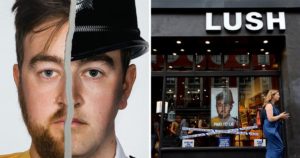Aim Your Outrage at Spycops, Not Their Victims
 Nobody thought that sort of thing happened in this country. For 40 years, the public were unaware of secret police units dedicated to infiltrating and undermining a swathe of political groups.
Nobody thought that sort of thing happened in this country. For 40 years, the public were unaware of secret police units dedicated to infiltrating and undermining a swathe of political groups.
The spycops units were more counter-democratic than counter-terrorist. More than 1,000 organisations were targeted: peace campaigns, environmentalists, anti-racists, trade unions – even Labour MPs & the Young Liberals.
When undercover officer Mark Kennedy was unmasked in 2010, the lid was lifted. Spycops had lied to courts and withheld evidence. Kennedy alone was responsible for 49 wrongful convictions. If Kennedy is average, this means over 7,000 miscarriages of justice have been secured by the 144 spycops. Even if we conservatively say it’s only one per officer per year undercover, it’s around 600.
Spycops stole the identities of dead children to create their fake personas. Perhaps most shockingly, they deceived women they spied on into sexual relationships – many integrated into families with plans for a lifetime together. The women’s personal stories are absolutely harrowing.
PUBLIC SHOULD MEAN PUBLIC
These were not rogue officers; these activities were how the units operated. The spycops were trained, monitored and guided to do this, with their managers being drawn from earlier generations of the same unit. This was an institutional failing.
The police have thrown every obstacle into the path of victims seeking answers. It took four years for the deceived women to get an apology, admitting:
‘these relationships were a violation of the women’s human rights, an abuse of police power and caused significant trauma’.
The Met have since specified that they violated the right to a private life, and the right to freedom from torture, inhuman or degrading treatment – a fundamental right that officers are sworn to uphold.
In 2014 it was revealed they had spied on the family of Stephen Lawrence, and a full-scale public inquiry was ordered. Scheduled to finish in 2018, it has yet to formally begin; the ‘ambitious’ finishing date is now set for December 2023. The police have obstructed it just as they have the victims’ legal claims. They even applied to have the entire process held in secret, seemingly unable to understand the term ‘public inquiry’.
The Inquiry’s new Chair, Sir John Mitting, is steering it towards collapse. Before we can begin, we need the list of cover names spycops used so that people can identify infiltrators and report what they did. Victims have repeatedly made this plain.
But Mitting is granting maximum anonymity to many officers, asserting that those in long marriages are presumed incapable of misconduct. Mitting needs to be replaced by, or at least sit alongside, a panel of people with life experience relevant to victims.
THE LUSH POSTER IS SIMPLE
At this crucial moment Lush, with their history of supporting human rights causes, have worked closely with victims on their new campaign. The poster is simple – a face that’s half police officer, half someone else. The message is not hard to grasp, even if you divorce it from the words and other material that surround the image.
Mashing up two ideas to create a third is a basic device that children enjoy with collage. Those who claim not to understand this visual language must be very confused by other adverts, GIFs and emoji.
When the BBC abuse scandal broke, we understood that even though most 1970s presenters didn’t sexually assault anyone, and the BBC does a lot of good work, there was an institutional failing. This doesn’t mean every current BBC employee is an abuser. Yet some police officers are trying hard to pretend that’s what Lush is doing in calling out the spycops.
The response of officers who have intimidated Lush staff into taking down posters is an extension of what we’ve seen from their management over the last eight years.
If they care about the service being brought into disrepute, they should aim their anger at those who grossly abuse police power to violate citizens, lie to courts and undermine democratic groups, rather than those of us who point it out.
A slightly shorter version of this article appeared in The i Paper on 5 June 2018.
